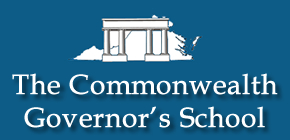CGS Honor Code

The CGS honor system strives to build trust and respect among students and faculty. Its purpose is to foster an environment of moral excellence within an academic community that shares a code of values. An inherent aspect of education is instilling a sense of honor, integrity, and high principles that extend to all facets of life. Learning depends on honesty. It requires students and teachers to analyze what they know and to set goals to expand both their knowledge and skill foundation. Since learning thrives on dialogue and debate, it flourishes in communities where trust, truthfulness, and respect prevail.
This CGS Honor Code is designed to reflect and reinforce the honor code expectation of students’ home-based schools.
Students: The students of CGS may not give or accept unauthorized assistance. Unauthorized assistance includes sharing oral and written information during examinations, tests, quizzes, or homework assignments; consulting written materials or copying another’s work without the teacher’s expressed permission. Tests may not be taken out of the examination room without the teacher’s express permission and must be completed within the allotted time. Notes or other sources may not be consulted unless specifically authorized by the faculty member administering the examination. Cheating includes, but is not limited to, copying, plagiarism, unauthorized collaboration, and unauthorized divulging of information. Falsification includes the intent to mislead, as well as forgery of any signatures. Lying or stealing violates the principles of integrity and respect for self, others, and property. It is in each student’s best interest to adhere always to the values of honesty, integrity, and respect.
Plagiarism: All material submitted should be the student’s own original work. Students are solely responsible for the analysis and research. Plagiarism is defined as the presentation of someone else’s ideas or words as your own. When a student paraphrases, diction and phrasing should not duplicate or closely parallel the language of the source, but should show the student can process information and create new ideas based on what he/she has heard or read. Furthermore, if a student directly quotes someone else’s analysis or line of reasoning, including arguments that the student may only have heard, and not seen in print, the student should acknowledge that information in a parenthetical citation or in a footnote.
The Pledge:
The Honor Pledge is an expression of the student’s support of the Honor Code. The student should write and sign the following pledge on every graded assignment:
“I have neither given nor received any unauthorized assistance on this Assignment.” (Followed by an original signature)
Violations and consequences:
The CGS teacher will provide notification to the student’s parents/guardians.
An Honor Code violation report will be sent to the student’s appropriate school administrator. The student will be subject to procedures and consequences as outlined by the home-based school’s code of conduct.
The student will not receive credit nor be allowed to make up the assignment. At the teacher’s discretion, an alternate assignment may be completed for credit.
Faculty: CGS faculty members serve as professional role models for life-long learning, as well as exemplify the values of honor, respect, and integrity. They have a responsibility for setting clear expectations under which their classes operate; i.e. when they encourage or prohibit cooperation among students.
Developed in the spirit of a regional community of learners by:
-
- Amber Mathur, CGS Class of 2003, Stafford High School
- Victoria Glick, CGS Class of 2002, North Stafford High School
- Cathleen Hannifin, CGS Class of 2002, Chancellor High School
- Todd Rosenbaum, CGS Class of 2002, Massaponax High School
- Ali Wyne, CGS Class of 2003, Stafford High School
Approved by the Commonwealth Governor’s School Governing Board June 20, 2002
